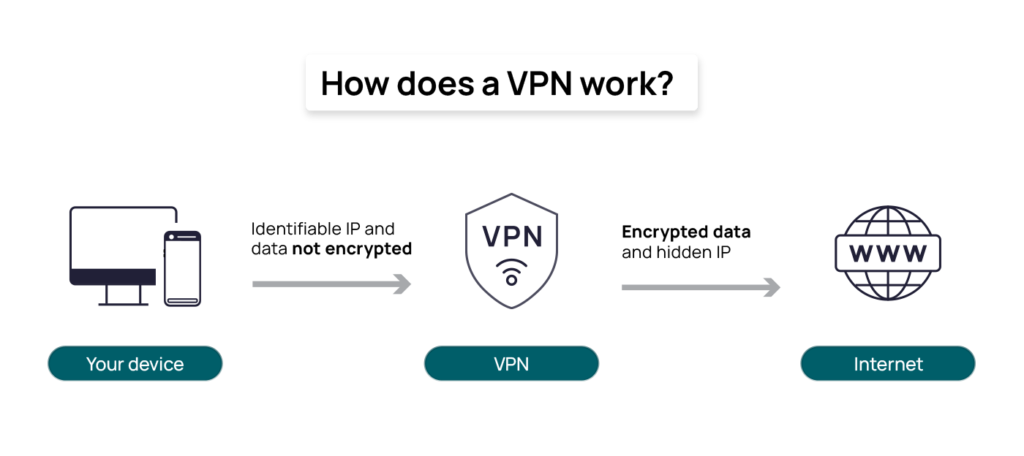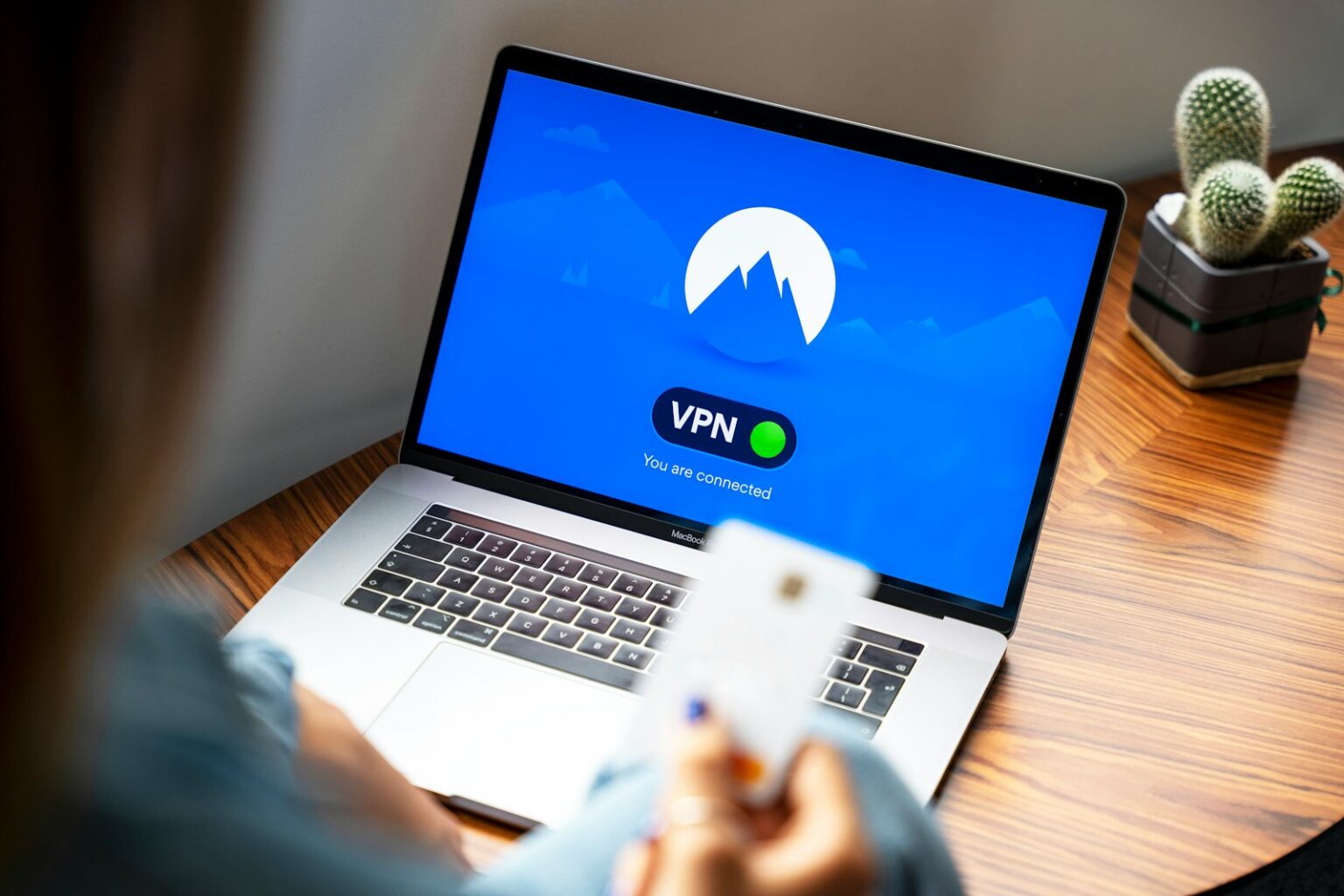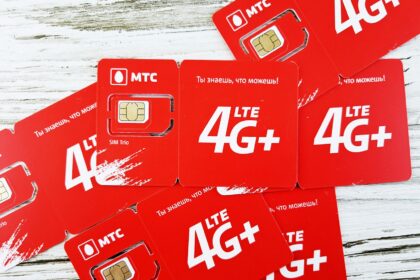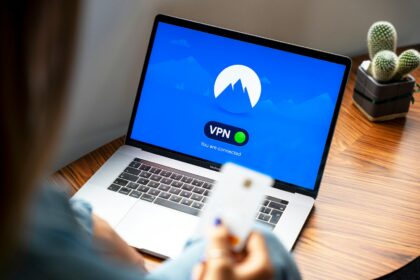In today’s world, keeping your online privacy safe is key. Using a VPN (Virtual Private Network) is a smart step to protect your digital life. It not only keeps your online activities private but also shields you from cyber threats.
Whether you’re using public Wi-Fi or trying to access content blocked in your area, a VPN helps a lot. It keeps your data safe and secure.
This guide will show you how to use a VPN to make your online activities safer. You’ll learn how to make the most of your VPN. Get ready to improve your internet safety and explore a safer digital world.
What is a VPN?
Understanding *What is a VPN* means knowing its technical side and its uses. A VPN, or Virtual Private Network, is key for keeping your online life private and secure.
Definition and Purpose
The basic *VPN definition* is a service that lets you safely and privately surf the internet. It does this by sending your connection through a server and hiding your online actions. The main *VPN purposes* are to protect your data, keep your privacy safe, and get around content blocks based on where you are.
How VPNs Improve Online Security
Using a VPN boosts your *online security* by encrypting your data. This makes it hard for hackers to get or understand your information. An *online security VPN* also hides your IP address. This adds more privacy and stops others from collecting your data without permission.
Popular Use Cases
There are many times when a VPN is really useful:
- Accessing Restricted Content: VPNs help you get past regional blocks and see content not available in your area.
- Securing Data on Public Wi-Fi: Using a VPN on public networks keeps your data safe from cyber dangers.
- Anonymous Browsing: A VPN hides your IP address. This keeps your online actions private and anonymous.
Benefits of Using a VPN
Exploring the VPN benefits shows how these tools improve our internet use. VPNs protect our online privacy and data, making them crucial today. Let’s look at the main advantages of using VPNs.
Enhanced Privacy
Using a VPN gives you enhanced privacy. It hides your IP address, making it hard for trackers and hackers to find you online. This keeps your personal info safe and private, away from unwanted eyes and threats.
Increased Security on Public Wi-Fi
Public Wi-Fi networks can be risky for your data. A VPN adds security by encrypting your internet. This protects your sensitive info, like passwords and financial details, from unauthorized access.
Access Restricted Content
VPNs let you access geo-restricted content. Many streaming services and websites block access based on where you are. By connecting to servers in other countries, VPNs help you get past these blocks. This opens up a world of entertainment, education, and more.
How Do VPNs Work?

Understanding VPNs involves looking at several technical aspects. These ensure your online privacy and security. This section will explain how a VPN works, including encryption, VPN servers, and data paths.
Encryption Mechanisms
Every Virtual Private Network uses strong encryption. This encryption turns your data into unreadable code as it goes over the internet. It stops unauthorized access. Modern VPNs use AES-256 encryption, which is hard to break.
VPN Servers and IP Masking
IP masking is key with VPNs. When you connect to a VPN server, your IP address changes to the server’s. This hides your online activities and protects you from tracking.
Your Data Path Explained
Your data’s journey through a VPN has a few steps:
- Device to VPN Server: Your data gets encrypted on your device and sent to the VPN server.
- VPN Server to Destination: The VPN server decrypts your data, gives it a new IP, and sends it to its final destination.
- Response Route: The destination’s response goes back to the VPN server, gets encrypted, and reaches your device.
This process keeps your personal info safe and your online identity hidden.
Choosing the Right VPN
When picking a VPN, it’s key to look at a few important things. You should check out the VPN security features, how well it performs, and its privacy policies. These factors greatly affect your safety and how well you can browse online.
Security Features
The security of your data is a top concern. Make sure the VPN uses strong encryption, like AES-256. Also, a kill switch is a must. It cuts off your internet if the VPN drops, keeping your data safe.
Performance Considerations
How well a VPN performs is also crucial. The speed and location of servers can greatly affect your experience. Choose a VPN with fast servers and low latency for smooth browsing and streaming.
Privacy Policies and Data Logging
The privacy policies of a VPN are also vital. A good VPN should say it doesn’t log your activities or personal info. This helps keep your online identity private and safe.
Setting Up Your VPN
Setting up a VPN is key for both pros and newbies. This VPN installation guide provides clear steps and tips. It covers how to activate important features. Let’s get into the details for a smooth setup.
Installation Steps
To start, download the VPN software from a trusted source like NordVPN or ExpressVPN. Here’s how:
- Download: Go to your VPN provider’s website and download the software for your system.
- Install: Open the file and install it by agreeing to terms and choosing a location.
- Sign up or Log in: Open the app, create a new account, or log in to your existing one.
Configuration Tips
After installing, configure your VPN for personal use. Here are some tips:
- Server Selection: Pick a server based on your needs, like speed or location.
- Protocol Settings: Choose a VPN protocol for security or speed, like OpenVPN or IKEv2.
- Auto-Connect: Turn on auto-connect to start your VPN automatically.
Activating Key Features
The last step is to turn on key VPN features for better security and use:
- Kill Switch: This feature cuts your internet if the VPN drops, preventing leaks.
- Split Tunneling: Routes some traffic through the VPN and others directly to the internet.
- Secure DNS: Turn on secure DNS to avoid leaks and boost privacy.
By following these steps and tips, you’ll set up your VPN smoothly. From downloading to VPN features activation, each step boosts security and usability.
How to Stay Secure Using VPN
Keeping your online activities private and safe is key when using a VPN. To maintain security using a VPN, follow some best practices. These practices make your VPN more effective and protect you from threats.
First, always keep your VPN software updated. Updates boost performance and fix security holes that hackers might use. Always check for updates and apply them right away.
Using strong, unique passwords for your VPN is also vital. Don’t pick easy-to-guess passwords. Instead, choose complex ones with letters, numbers, and symbols. A password manager can help keep your passwords safe and organized.
Being careful about phishing scams is another important step. Hackers use fake emails to trick people into sharing personal info. Always check if emails are real and avoid suspicious links or attachments.
Adding trusted antivirus software to your VPN setup adds extra security. Norton, McAfee, or Bitdefender can catch and block many threats. This helps keep your online presence safe.
In short, following these steps will help you maintain security using a VPN and make your online time safer. Regular updates, strong passwords, being cautious of phishing, and antivirus software all play a part in a strong defense against cyber threats.
Advanced VPN Features
Exploring advanced VPN features can unlock new levels of security and privacy. One such innovation is the use of obfuscated servers. These servers hide the fact that you’re using a VPN. This helps avoid VPN blocks and DPI techniques used by some governments and organizations.
Another fascinating feature is VPN cascading. This involves routing your traffic through multiple VPN servers. It adds layers of encryption, making it hard for adversaries to trace your online activities. While it may slightly reduce connection speeds, the enhanced security is worth it for those who prioritize privacy.
Many enhanced VPN options also include Tor over VPN configurations. This combines the anonymity network of Tor with VPN security. The VPN encrypts your traffic before it enters the Tor network. This provides an extra shield against vulnerabilities within the Tor network itself.
For those who seek maximum security and anonymity, these VPN advanced features are very beneficial. They help avoid restrictive internet censorship with obfuscated servers. They also strengthen encryption with VPN cascading and merge Tor and VPN benefits. These enhanced VPN options provide a robust toolkit for secure online experiences.
VPN Tips and Tricks
Using a VPN can be super powerful. There are many VPN tips and VPN tricks to boost your online safety and make browsing better. Let’s explore features like split tunneling, VPN auto-start, and the VPN kill switch to get the best from your VPN.
Split Tunneling
Split tunneling is a cool feature of modern VPNs. It lets you pick which apps use the VPN and which don’t. This is great for when you need fast internet for some things and secure connections for others.
Auto-Start Settings
Having your VPN start automatically is a big plus. By tweaking the VPN auto-start settings, your internet stays safe right when you turn on your device. You don’t have to remember to start it manually.
Kill Switch Activation
The VPN kill switch is key for keeping your privacy. It kicks in and cuts your internet if the VPN connection goes down. This stops your real IP from being seen. Make sure it’s on and works right to keep you safe.
Here’s a quick rundown of these important features:
| Feature | Benefit |
|---|---|
| Split Tunneling | Optimized performance and security for specific applications |
| Auto-Start | Ensures continuous protection from the moment your device is on |
| Kill Switch | Prevents IP exposure during unexpected disconnections |
Troubleshooting Common VPN Issues
Troubleshooting VPN issues can seem tough, but simple steps can fix many problems. We’ll cover common issues and how to solve them to improve your VPN use.
Connection Drops and Failures
Frequent connection drops can be annoying. First, check your internet connection. Make sure it’s stable and fast without the VPN. If problems continue, try a different VPN server. Server overload can cause drops.
Also, keep your VPN software up to date. Many issues are fixed with the latest version.
Slow Internet Speeds
Slow VPN speeds can ruin your online experience. Try using a server closer to you to cut down on delays. Lowering encryption can also speed things up without losing security.
If speeds don’t improve, try a different VPN protocol like WireGuard. It’s known for being faster.
Blocked Content and Errors
Seeing VPN content blocks can be upsetting. To get around these, switch to different servers in the same country. Some servers might be blocked by content providers.
Clearing your browser cache and disabling proxies can also help. If problems still exist, ask your VPN provider for streaming or restricted content servers.
Conclusion
In this guide, we explored the key benefits of using a Virtual Private Network (VPN). VPNs protect your online activities and keep your connection safe, especially on public Wi-Fi. They also let you access content blocked in your area.
We looked into how VPNs work, including encryption and server functions. We also covered how to set up a VPN easily. Doing this can greatly improve your online safety.
Remember, the digital world changes fast. Using advanced VPN features is key to staying safe. If problems arise, our troubleshooting section has helpful tips. Choosing a VPN means a safer, freer, and more private online life. Using these tips, you can enjoy greater security and freedom online.
FAQ
What is a VPN?
A VPN, or Virtual Private Network, encrypts your internet traffic. It also hides your IP address. This makes your online activities more secure and private.
How does a VPN improve online security?
A VPN encrypts your data and hides your IP address. This protects you from cyber threats, hackers, and data collection on public Wi-Fi.
What are the popular use cases of a VPN?
People use VPNs to access blocked content, secure data on public Wi-Fi, and browse anonymously. It has many uses.
What are the benefits of using a VPN for privacy?
A VPN hides your IP address. This makes it hard for websites, trackers, and hackers to track your online activities.
How do VPNs secure data on public Wi-Fi?
VPNs encrypt your internet traffic. This stops hackers from getting your data on public Wi-Fi.























